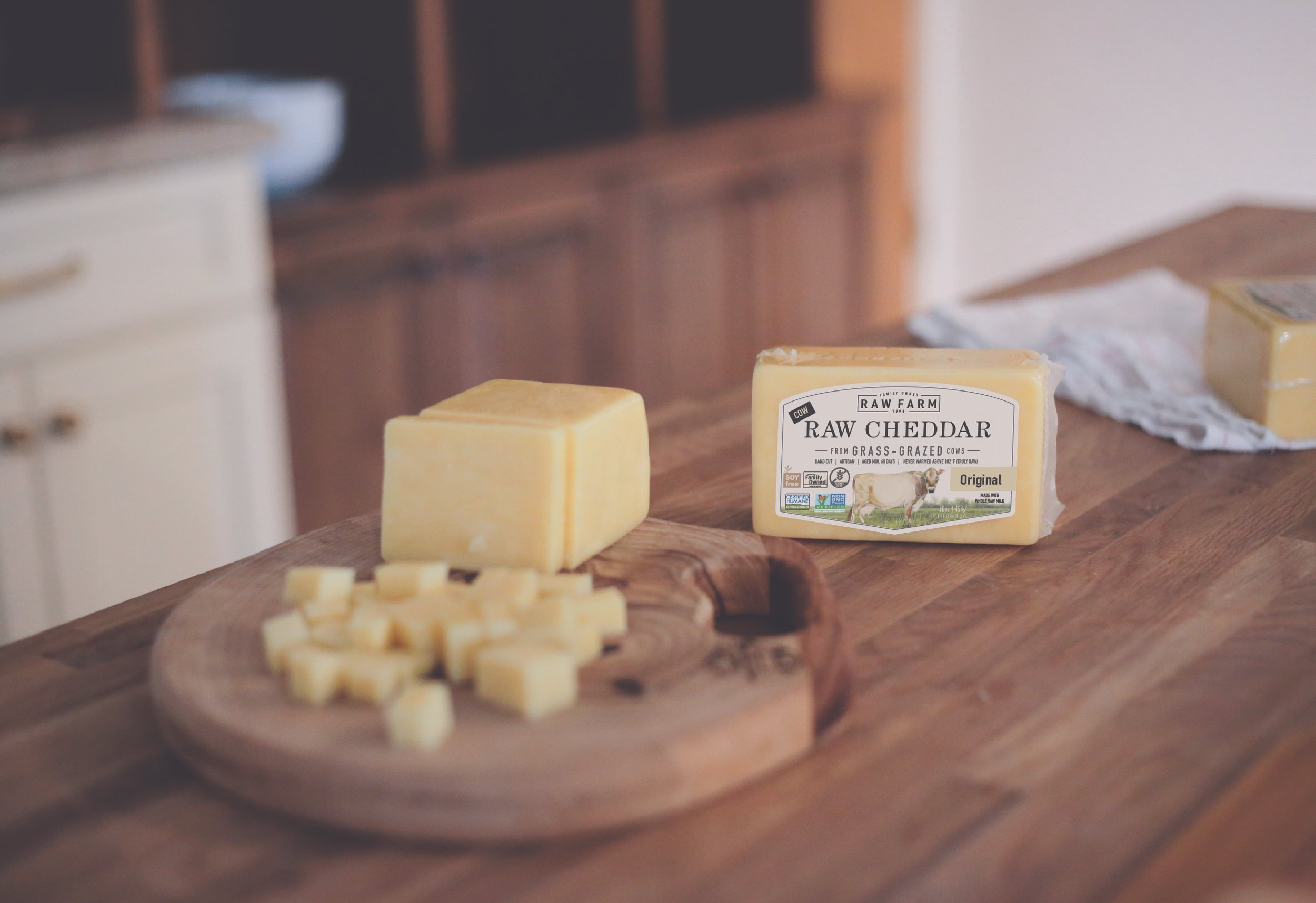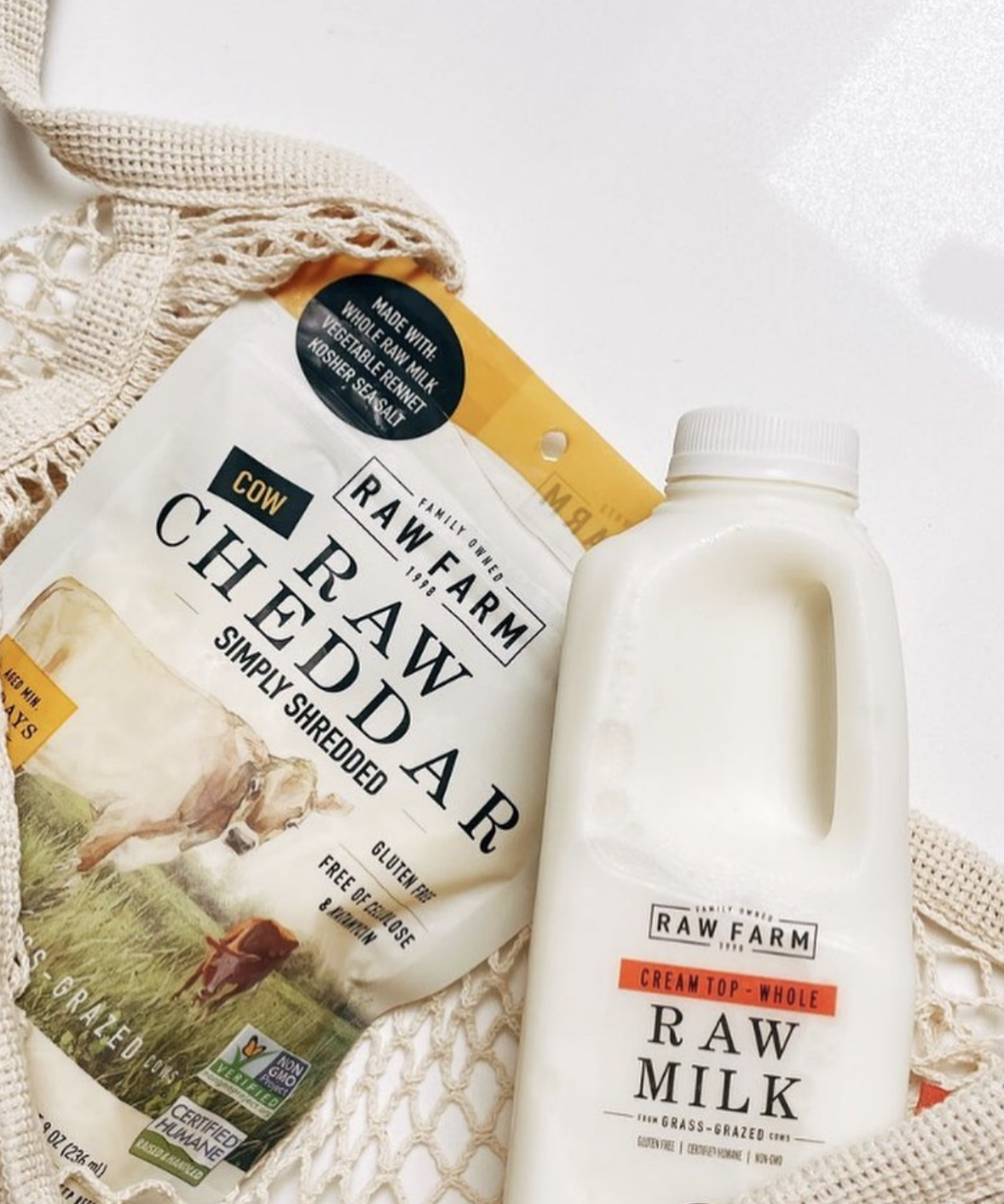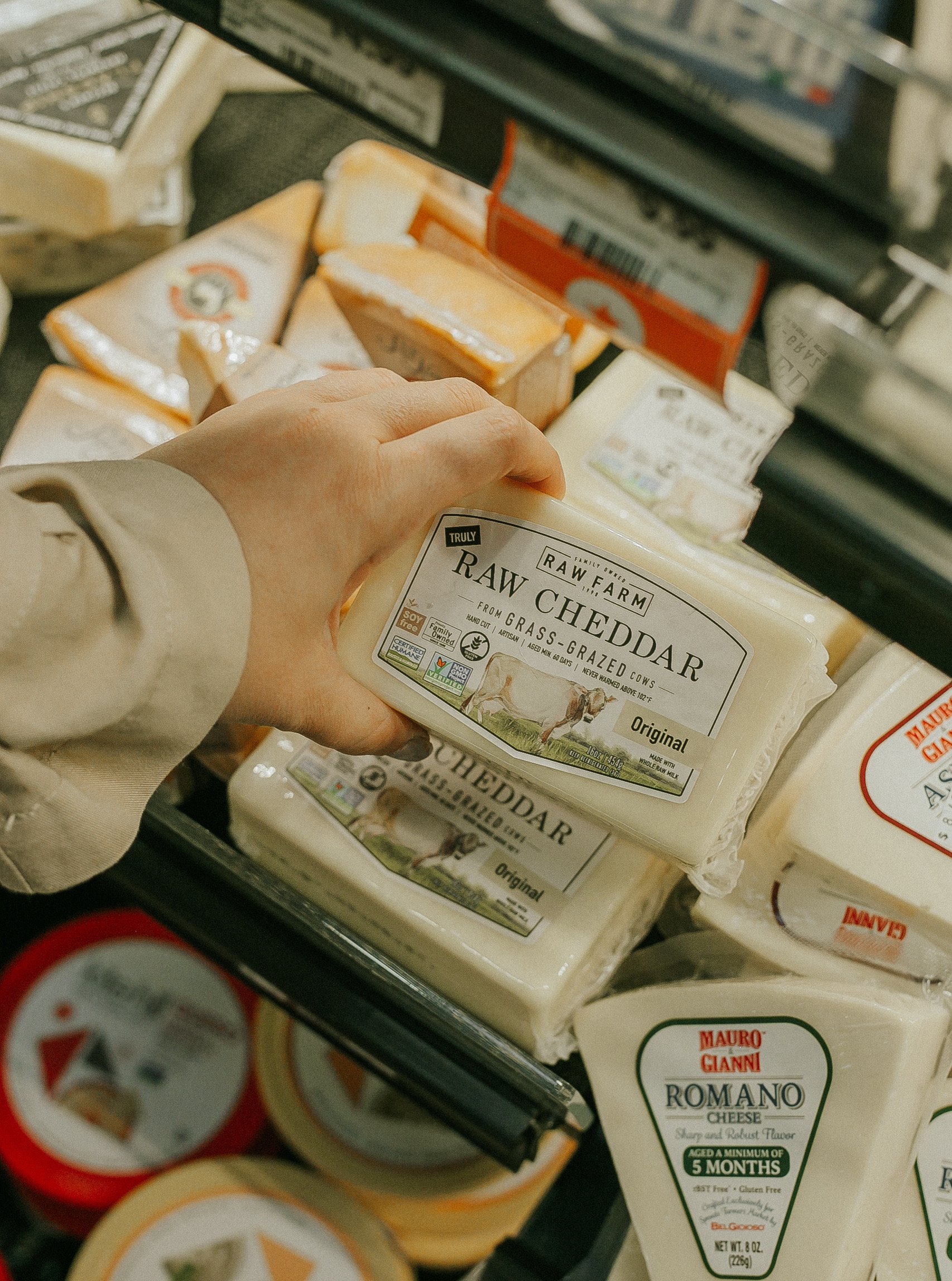WHAT KIND OF RENNET DOES RAW FARM USE IN THEIR CHEESE?
“What kind of rennet does RAW FARM use in their cheese?” is a VERY common question we have been getting from curious customers. Keep reading to learn what kind of rennet we use and why.
(BEHIND THE SCENES) OF THE CHEESE MAKING PROCESS
Making cheese is a unique experience! At RAW FARM, our raw cheese proudly has 4 simple ingredients: raw milk, cultures, vegetable rennet, and sea salt. Raw milk is the main ingredient; cheese cultures are a group of specific bacteria strains that are combined in order to make a particular type of cheese (cheddar, swiss, mozarella, etc). They are also used to help good bacteria in the milk flourish and lead to a more rich and developed flavor. Raw milk is already abundant in healthy, beneficial bacteria! Vegetable rennet is an important ingredient because it’s what makes the milk curdle. Without it, there wouldn’t be cheese. Lastly, salt is required by the FDA as a natural preservative, and it adds flavor to the cheese.
Types of rennet
There are 4 types of rennet options that can be used when making cheese: animal rennet, vegetable rennet, microbial rennet, and genetically modified FPC, which is believed to be used in 90% of the cheese options in the American supermarket.
Animal rennet is the oldest form of rennet, and is what our ancestors likely used to make their cheese products. Traditionally, rennet is a complex set of enzymes that are naturally produced in the stomachs of ruminant animals, like cows. The problem with using animal rennet today is that it is more expensive, and it usually takes longer to culture. History: Before there was pasteurized milk, there was simply raw milk. Raw milk is what our ancestors thrived on! It is only recently that pasteurization was invented (1800s), and with it came a variety of health issues. 30-50 million Americans TODAY report they have digestive issues with conventional dairy products. But when people try raw milk, they are amazed at how easily they can digest it. It makes sense to us because raw milk is unprocessed and contains the beneficial bacteria and digestive enzymes needed for your body to properly digest the product.
Vegetable rennet is another rennet option. It comes from plant-derived enzymes, which can sometimes result in the final product having a bitter taste. On our package, it says that one of our ingredients is “vegetable rennet”, but actually we use a microbial rennet.
Microbial rennet. We use what is considered a vegetable rennet that is approved by Kosher. In actuality, it is a microbial rennet. Our label says vegetable because according to label laws, you are either animal or vegetable. There is confusion with the term microbial. You could describe it as a specialized vegetarian cheese culture. We make our raw cheese with a mushroom fungi rennet. Microorganisms have the advantages of a short growth cycle, easy fermentation, and are not limited by space and region of production. Watch how we make our raw cheese here.
Genetically modified FPC is a rennet option that was made to combine the “best of both worlds”: rich flavor and cheap, quick production. FPC was created by Pfizer (a pharmecutical company) .Here is how FPC works: the rennet-producing gene is taken out of the animal cell’s DNA string and then inserted into the bacteria, yeast or mold host cell’s DNA string in a process known as gene splicing. Once inserted, the newly placed gene initiates the production of the chymosin enzyme within the host. The host culture is then cultivated and fermented.These DNA technologies are relatively new and became popular in the 1980s when the U.S. Supreme Court by a 5-4 vote ruled that new life forms can be patented. In 1990, the U.S. Food and Drug Administration (FDA) approved the use of FPC in food. It was the first time a bioengineered product was permitted in food in the U.S. This bioengineered FPC was granted GRAS (Generally Regarded As Safe) status, which means that Pfizer was exempt from the pre-approval requirements that apply to other (non-GRAS) new food additives. It is estimated that more than 90% of the cheese companies in America use FPC as their rennet choice. We as a whole do not know if FPC is a safe option, and we proudly do not use it in our cheeses! (source)
why RAW FARM useS the best rennet choice
RAW FARM IS PROUDLY NON-GMO
At RAW FARM, we strive to use the best ingredients! We are REALLY proud to be verified Non-GMO, which fits into our microbial rennet choice. HEALTHY INGREDIENTS- from the pastures, to the supplemental feed choice, to the culture, rennet, and additional ingredient choice, and our precious cows come together to make the healthiest, best raw cheese item on the market. Our cows are NEVER given antibiotics or hormones. WE DO NOT SPRAY or practice conventional methods. We proudly follow organic methods, even though we no longer promote being certified organic on the product. We founded our farm 5 generations ago and we like to say, “We were organic before organic became a thing…” Our mindset has not shifted. We have just gotten handier.
ABOUT RAW FARM RAW CHEESE
Our Raw Cheddar has aged a minimum of 60 days and is truly traditional artisan raw cheddar. Made with Whole Raw Milk, each block is packed with bioavailable vitamins, minerals, enzymes, beneficial bacteria, naturally occurring CLA, and Omega-3 fatty acids. Raw Cheddar's ease of digestibility gives those who experience discomfort with processed cheese products a delicious and natural option. No coloring was ever added. We believe in keeping our products TRULY raw, which involves never heating above 102° F. Many other so-called “raw” cheese are actually heated to temperatures just under the legal pasteurized temperature of 161° F, which denatures proteins, and enzymes, and kills beneficial bacteria that aid in the digestion of dairy.
If you do not see this item currently in your store, ask the dairy manager to order RAW FARM raw cheese from our national distributor, KeHe!





